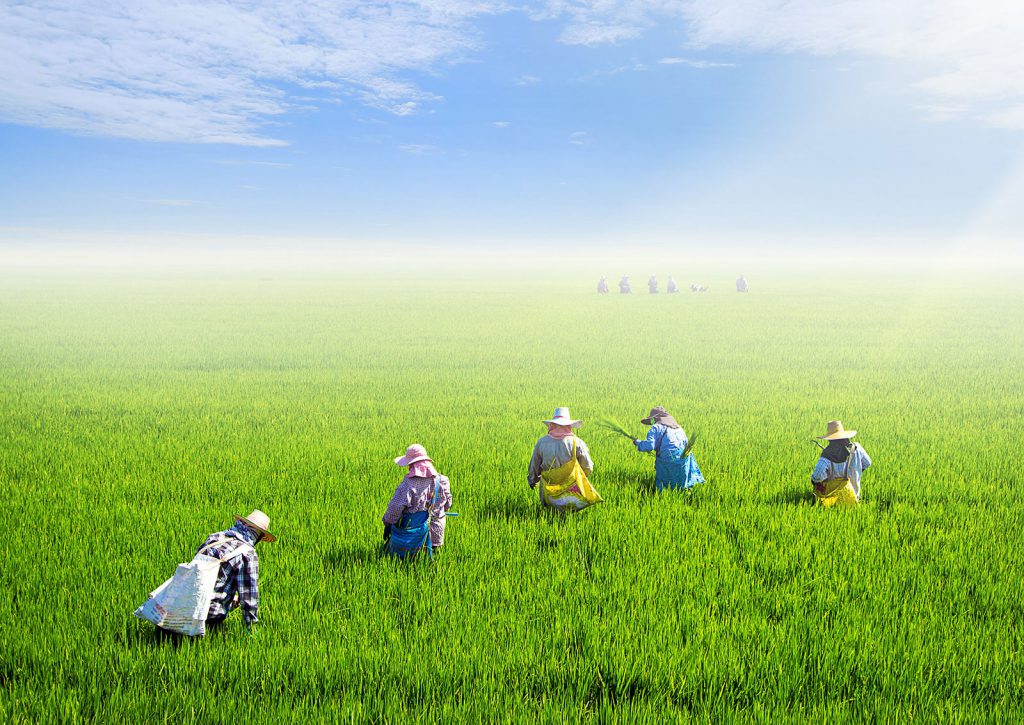FINISHED on 20 August 2020
CONTEXT
As one of the Parties ratifying the Paris Agreement in September 2016, Thailand put forward its target to achieve low carbon emissions and a climate resilient society through the Nationally Determined Contributions (NDCs). For the energy, transport, waste and industry sectors, the target of reducing greenhouse gas (GHG) emissions is earmarked at 20-25% by 2030. The agriculture sector is defined as one of the priority areas for adaptation but its mitigation targets have not yet been defined.
Rice plays an important role in Thailand. It is the main commodity for the nation’s agricultural exports and a major staple food for the Thai population. According to Thailand’s Second Biennial Update Report (BUR), rice farming generated the largest amount of GHG emissions in the agricultural sector, accounting for almost 55%. Against this backdrop, it is important for the rice sector to have appropriate mitigation and adaptation actions, as well as a framework for database system development for GHG emissions. In addition, how to create incentives for Thai farmers and other stakeholders of the rice value chain to change their current practices and implement these climate change actions in achieving a climate-friendly rice production must also be addressed.
OBJECTIVE
To support the assessment of mitigation and adaptation potential of the agriculture sector, notably rice farming, and in developing its first Measurement, Reporting and Verification (MRV) system for GHG emissions in the rice sector
APPROACHES
- National Policy Development;
- Subnational Implementation of the Thai NDCs;
- Establishment of an appropriate MRV and Monitoring and Evaluation (M&E);
- Mobilization of financial resources for NDC implementation; and
- Expansion of Thailand’s international cooperation to NDC implementation.
RESULTS SO FAR
- Assisting the Office of Agricultural Economics (OAE) in drafting the Action Plan for the Agriculture Strategic Plan on Climate Change (ASPCC) 2017-2021. The said Action Plan was subsequently adopted by the Sub-committee on Climate Change for the Agricultural Sector in February 2020;
- Collaboration with the Rice Department and the National Bureau of Agricultural Commodity and Food Standards (ACFS) in developing a publicly owned, voluntary Thai Sustainable Rice Standard (GAP ++) to integrate climate-change related aspects into the existing Rice GAP Standard. The development proposal of the GAP ++ was submitted to the ACFS Board in February 2020;
- Launching of Sustainable Rice Cultivation Toolkit in the Thai language which has been made available for public access by Thai rice sector stakeholders. The SRP Toolkit includes a Thai translation of the SRP Standard for sustainable rice cultivation, a handbook for Smart Officers and Smart Farmers, handouts, cartoons, storybooks, and folk-style songs on sustainable rice cultivation practices;
- Collaboration with the International Rice Research Institute (IRRI) in training for Rice Department officials in defining the detailed protocols on gas sampling and measurement, including the development of manuals. A customized GHG calculation tool has been developed in preparation for the SECTOR training course. Four gas chromatographs were procured and installed for the provincial Rice Research Centres of the Rice Department;
- Assisting the Committee on the MRV System of Rice Cultivation regarding the clarification of the institutional structure for GHG emission data collection with the related agencies (e.g. the Office of Natural Resources and Environmental Policy (ONEP) and Planning, the Office of Agricultural Economics (OAE) and the Rice Department
FINANCED BY
- The German Federal Ministry for the Environment, Nature Conservation, Nuclear Safety and Consumer Protection (BMUV)
- The International Climate Initiative (IKI)
COUNTRY
Thailand
PROJECT PARTNER
Thai Rice Department
PROJECT DURATION
01/2018 – 12/2022
MORE INFORMATION
TGCP Agriculture | Sustainable Agrifood System in ASEAN (asean-agrifood.org)
